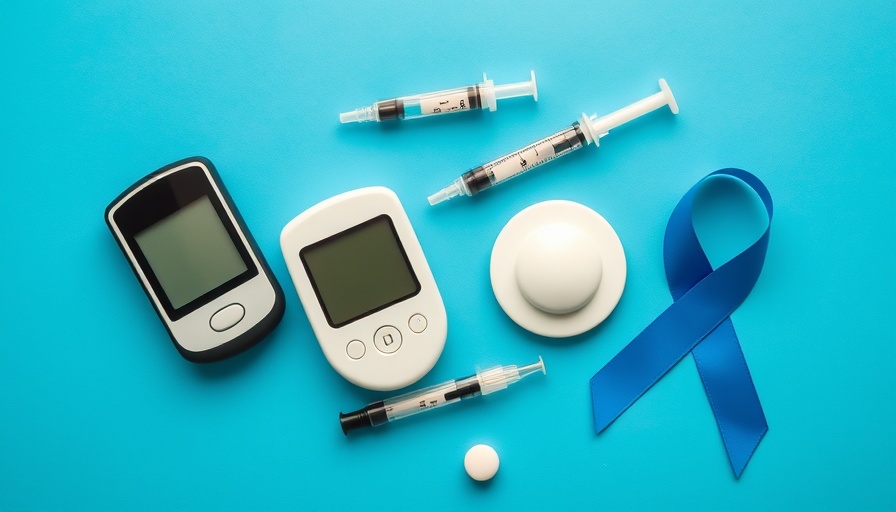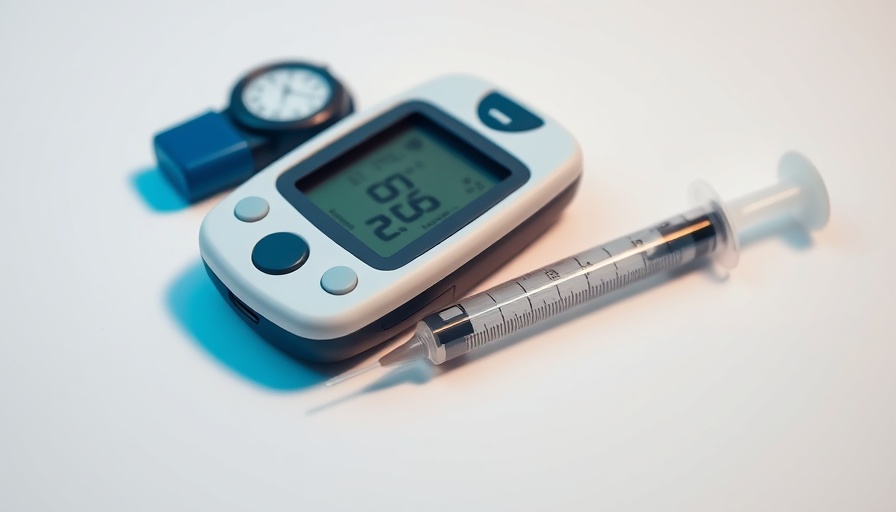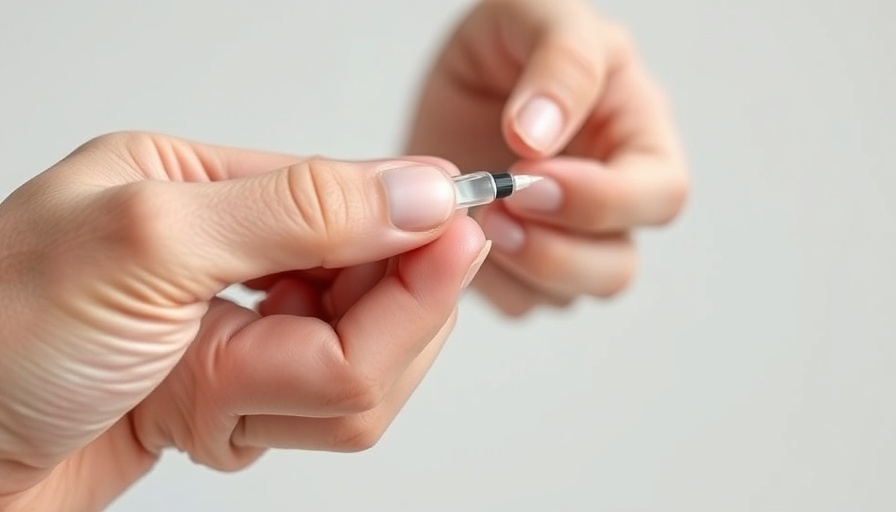
The Power of Understanding Diabetes Management
Diabetes is not just a condition; it’s a part of life that requires awareness and adaptation. It's as much about mental resilience as it is about physical management. Knowing how diabetes affects your body can empower you to take charge of your health. This chronic condition can range from type 1 diabetes, which is usually diagnosed in children and young adults, to type 2 diabetes, which can develop later in life and is often linked to lifestyle factors. Empowering oneself with this knowledge is the first step towards effective management.
Smart Eating: The Foundation of Diabetes Control
Every meal is a stepping stone towards better health management. A balanced diet rich in fruits, vegetables, whole grains, and lean proteins is essential. Portion control and understanding carbohydrates' impact on your blood sugar can pave the way to effective management. Consider working with a registered dietitian to create a tailored meal plan. This tool can help you navigate the complexities of what to eat and when, allowing you to enjoy dining out or cooking at home without stress.
Physical Activity: Moving Towards Better Health
Regular exercise isn’t just beneficial; it’s transformative for those managing diabetes. Physical activity can enhance insulin sensitivity and reduce blood sugar levels. Aim for at least 150 minutes of moderate activity per week, complemented by strength training exercises. This doesn’t have to mean hours at the gym; walking after meals or engaging in an enjoyable dance class can be just as effective. Incorporating movement into your daily routine can make fitness an enjoyable part of your life, not a chore.
Medication Management: A Cornerstone of Diabetes Control
For many, managing diabetes also means incorporating medications into their routine. For those with type 1 diabetes, insulin therapy is crucial. Type 2 diabetes may require oral medications or insulin. Staying on top of these with consistent adherence is key to keeping blood sugar levels in check. It’s essential to have conversations with healthcare providers to adjust treatments as needed, ensuring optimized management. Understanding the role of your medications can help demystify this aspect of health.
Effective Monitoring: Keeping a Finger on the Pulse
Regular monitoring of blood sugar levels is vital for understanding how lifestyle changes impact your diabetes management. Advances in technology, such as continuous glucose monitors, give real-time feedback that can help guide dietary choices, physical activity, and medication needs. This insight allows individuals to make informed decisions and adjust their strategies as necessary, making management proactive rather than reactive.
Balancing Life and Diabetes: Tips for Everyday Success
Managing diabetes is about creating a balance in life. Here are some practical tips to consider:
- Meal Planning: Design your meals ahead of time, ensuring you meet nutritional needs while keeping blood sugar in mind.
- Stay Active: Incorporate simple exercises throughout your day; even minor adjustments can make a significant difference.
- Stress Management: Engage in relaxation techniques, like yoga or meditation, to alleviate stress that can affect blood sugar levels.
- Prioritize Sleep: Ensure you are getting enough rest, as sleep impacts insulin sensitivity and overall health.
- Regular Health Check-ups: An ongoing dialogue with healthcare providers is essential for creating an evolving and effective management plan.
Dispelling Myths About Diabetes Management
Many misconceptions surround diabetes, especially regarding diet and exercise. Some people believe that all carbohydrates should be eliminated, while others think that managing blood sugar levels is impossible without insulin. The reality is that a balanced diet with appropriate carbs, coupled with physical activity and medical guidance, forms a well-rounded approach to managing diabetes successfully.
The Future of Diabetes Management: Trends and Opportunities
Looking ahead, there are exciting developments on the horizon for diabetes management, such as advancements in personalized medicine and digital health. Devices like insulin pumps and smart meters are becoming more integrated into everyday health management, ensuring those with diabetes can lead fulfilling lives without limitations. Keeping an eye on these trends can prepare individuals to adapt and embrace new tools that may aid in their management journey.
Take Charge of Your Health: Next Steps for Diabetic Individuals
Now that you are armed with substantial knowledge about diabetes management, it’s time to take action. Whether it’s adjusting dietary habits, increasing your activity level, or reevaluating your treatment strategies with medical professionals, every step counts toward better health. Engage with support groups or online communities to share experiences and strategies. Remember, diabetes management is an ongoing journey, and the more proactive you are, the better your health outcomes will be.
 Add Row
Add Row  Add
Add 



 Add Row
Add Row  Add
Add 


Write A Comment